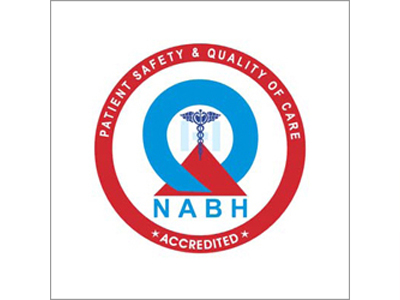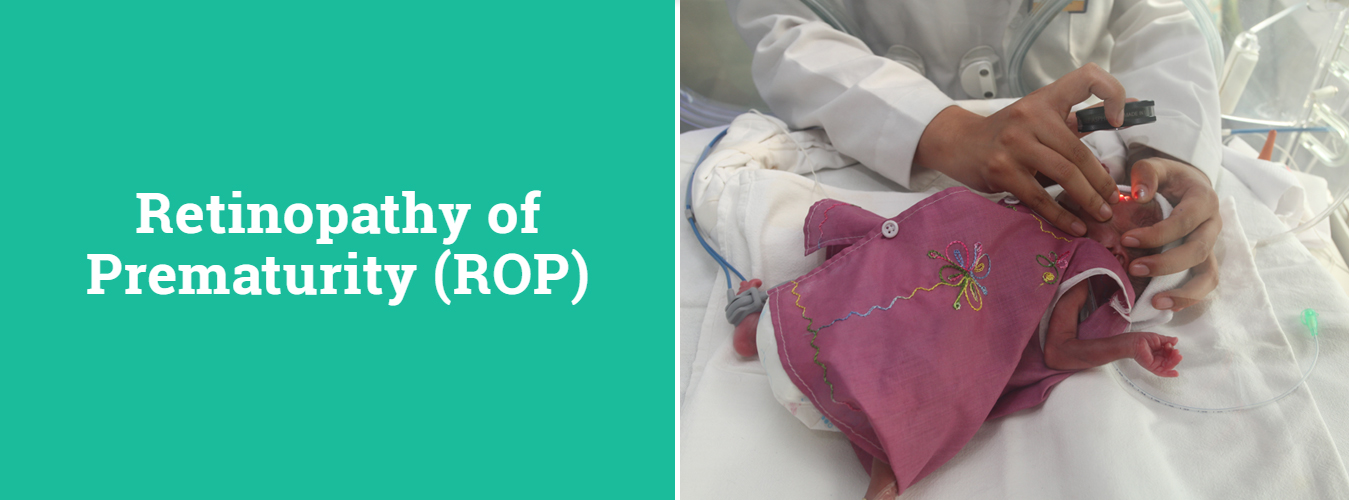Hyderabad, November 7, 2014: Blindness and vision impairment in newborns and young children are on a rapid rise in India with improved newborn care and swift socio-economic development. In the context of preventing blindness in newborn babies, Retinopathy of Prematurity (ROP) has emerged as a severe challenge particularly in developing and middle-income group countries in Latin America, Eastern Europe, South East Asia, China and India. The World Health Organization (WHO) has underscored the importance of this condition by including ROP as a major target disease in its prevention of blindness program, VISION 2020 - The RIGHT to SIGHT programme to combat needless blindness globally by the year 2020.
Highly efficacious, scientifically proven and accessible technology is available to manage ROP in the last two decades. Various multicenter prospective studies have conclusively proven that timely detection and treatment can markedly reduce blindness due to ROP. Yet untreated ROP blindness continues to be a reality and India has the highest number of blind children. More than 60% of visual impairment in babies is preventable or curable with timely detection, prompt and appropriate preventive and curative management.
ROP has become a mission for LVPEI since 1999 and a constant endeavour to translate information available in books and journals to actual implementation at the bedside of the neonate. On completion of 15 years of the ROP screening program, LVPEI re-dedicates its team that includes Dr. Padmaja Rani and Dr. Divya Balakrishnan in Hyderabad, Dr. Tapas Padhi and Dr. Umesh Behera in Bhubaneswar, Dr. Sameera Nayak in Vijayawada and Dr. Virender Sachdeva in Visakhapatnam to further expand the newborn eye screening program to spread its reach to every baby in the hospital/NICU/SNCU to enable them achieve their RIGHT to Sight! There are a number of risk factors for newborn eye problems including premature birth, familial disorders, Rubella, Congenital diseases, poor cry at birth, etc that need to be addressed through a health sector-wide multidisciplinary approach and LVPEI has pioneered some such approaches.
Addressing the media, Dr Subhadra Jalali, Associate Director, Srimati Kanuri Santhamma Centre for vitreo-retinal diseases, and the Jasti V. Ramanamma Children’s Eye Care Centre, L V Prasad Eye Institute, Hyderabad said, “Our 15 years of sustained efforts in partnership with Indian Neonatologists and other ROP centres in India, helped formulate the National ROP Guidelines in 2010 specific for India. We are an integral part of the Ministry of Health, Govt. of India Task force on ROP and WHO used our expertise to improve ROP blindness programmes under the Philippines Government. We also became the first state in India to expand the program to Government Special Newborn Care Units (SNCU) under the NRHM program for Andhra Pradesh (in the erstwhile undivided Andhra Pradesh that includes current Telangana). All our efforts, including our partners in neonatal and childhood care also helped for the first time to get a mandatory preventive Eye screening status for ROP in the Rashtriya Bal Swasthaya Karyakram (RBSK) and today we are on the expert panel of this Government program.”
To mark 15 years of its INDIAN TWIN CITIES Retinopathy of Prematurity Screening (ITCROPS), L V Prasad Eye Institute (LVPEI) organized a series of activities to bring public focus on the eye disease that affects any baby, especially the preterm and low weight babies. Recognised as the premier Institute for rare and complex surgeries in babies, LVPEI played host to the first ever dedicated hands-on surgical workshop in India devoted to retinal diseases of newborns and small children. Prominent retinal surgeons from India discussed and debated with world leaders, Dr. Michael Trese and Dr. Lingam Gopal, on strategies to improve awareness amongst the community on ROP and conducted skill-transfer for its advanced management. About 100 children with retinal problems were examined for expert opinion during this workshop.
The EIGHTEENTH Dr C Syamala Bhaskaran Endowment Lecture on Blinding diseases in premature newborns: Management of ROP in the 21st century by Dr Michael Trese was also held at the Institute. The annual lecture series was initiated in honour of Bhaskaran’s generous support to L V Prasad Eye Institute for creating public awareness about Retinal diseases.
Dr Subhadra Jalali further added, “Over the last 15 years, LVPEI team has examined more than 12,000 babies and treated more than 16,000 eyes with state of art lasers and surgeries. The smallest baby treated in our program was 550 grams and smallest baby to undergo major surgery was 1400 grams - these tiny eyes require great skill and the team effort of competent surgeons, anaesthetists, highly motivated neonatologists and nurses in partnership with courageous parents.” LVPEI has extended training programs to surgeons not only in India but also in countries like Indonesia, Nepal, Pakistan, Azerbaijan and China. LVPEI has successfully imparted training to more than 350 professionals in India and abroad for ROP screening and treatment.
The most recent WHO estimates confirm 80% of all causes of visual impairment are preventable or curable. WHO estimates that in 2010 there were 285 million people visually impaired, of whom 39 million were blind. Provision of effective and accessible eye care services is the key to effectively control visual impairment including blindness. Comprehensive eye care services need to become an integral part of primary health care and health systems development. Eye health also needs to be included in broader non-communicable and communicable disease frameworks.
About L V Prasad Eye Institute
The L V Prasad Eye Institute provides high quality comprehensive eye care to all people; provides sight enhancement and rehabilitation services at the Institute and through its rural eye health network; offers professional ophthalmic training at all levels; and conducts cutting-edge eye care research. The Institute is a World Health Organization (WHO) Centre for the Prevention of Blindness and a Global Resource Centre for VISION 2020, a worldwide initiative for the elimination of avoidable blindness led by WHO and the International Agency for the Prevention of Blindness. For further information, visit the Institute’s website www.lvpei.org.
For further information, please contact:
Dr Sreedevi Yadavalli, Associate Director and Head – Communications
Tel: +91 040 23547254, +91 040 30612444, Email: ysreedevi@lvpei.org
















